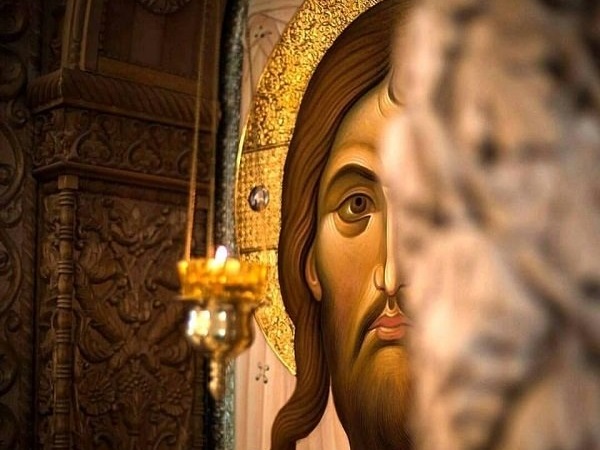Christ, our true nourishment
1 August 2023Clearly the impressive number of people who went to meet Christ didn’t do so in the expectation of a free meal. They went to satisfy a different hunger: the hunger for his teaching, sweeter than ‘honey and beeswax’. When Christ saw their ardent desire, he took pity on them. First he healed their sick without asking for proof or confession of their faith. Indeed, as Saint John Chrysostom asks, what greater proof of their faith was required when they’d left their homes and villages in order to seek him. They walked so far, all around the lake and stayed with him for so long, without eating, indifferent to the hunger which had begun to gnaw at them.

Don’t cross your arms
As evening approached, the disciples also showed their own pity for the crowd and urged Christ to let them go and eat. Much to their surprise, Christ said to them, ‘There’s no need for them to go anywhere. Give them food yourselves’. In other words, Christ says to them and us, ‘Even in the face of the most unsurmountable problem, don’t be in a hurry to cross your arms and wait for solutions from heaven. First exhaust all your own resources, however few these may seem to you. And I’ll multiply this minimal contribution of yours in a way beyond your imagination’.
Who would ever have thought that in the darkness of the Turkish occupation of Greece, so many schools would have been founded by an impoverished monk? And yet it happened. The renown of the life of Saint Kosmas Aitolos and his fiery oratory were such that even Turkish officials contributed money for Christan schools. The ‘loaves’ of his oratory, leavened with the tears of his prayers and the sweat of hours of walking, continue to satisfy countless hosts of Christians to this day.
‘Not by bread alone’.
Christ attributes inestimable value to our smallest contribution, especially when this is made in the spirit of genuine love and sacrifice. In this spirit, the disciples willingly offered their own food, preferring to go without themselves so that even a few could eat well. And even though Christ would have been able to turn the stones there into bread or to bring down manna from heaven, he preferred their five loaves and two fish. When he’d multiplied them, he told the disciples to assist in the great miracle with their own hands. It’s a great honor and, at the same time, a great responsibility that God wants us to work with him in his wondrous works.
Apart from giving yet more convincing proof of his divinity through this astonishing miracle, Christ also wanted to recognize and encourage the fervor of the multitude who had come to hear him and of all those who hunger and thirst for his righteousness. Such people corroborated in the most irrefutable manner his answer to the first of the devil’s temptations. When the latter challenged Christ to make the stones into bread in order to satisfy his hunger after fasting for forty days, Christ answered that people don’t live on material bread alone but on the word of God’.
The danger of an empty life with a full stomach
The deeper meaning of this temptation is illustrated in Dostoevsky’s superb novel Brothers Karamazov. In it, the devil, through the mouth of the Grand Inquisitor, challenges Christ: ‘Make these stones into bread and the whole of humankind will follow you like a mindless flock. For most people, the gift of freedom is unbearable, because it creates responsibilities. So, remove their freedom and make them obey you blindly by filling them with bread’. As the only source of true freedom, however, Christ didn’t want to buy our freedom with bread. And Christ didn’t perform the miracle mentioned in today’s Gospel reading in order to make us his mindless, but satisfied, followers. A life with bread alone, without freedom, has no meaning. It’s an unlived life.
The French students who revolted in May1968 wrote something similar as a slogan: ‘We reject a world where the certainty that we’ll not die of hunger is [achieved] in exchange for misery and an absence of meaning in life’. Much later, Greek anarchists expressed this in five words: ‘Empty lives; full of credit’.
In the end the miraculous feeding of the five thousand didn’t have as its purpose the provision of magical solutions to social problems. Such a misinterpretation of the miracle very quickly circulated and Christ condemned it in no uncertain terms: when they found him on the other side of the lake, they were given a ‘cold shower’ to wake them up. ‘I tell you, you are looking for me, not because you saw the signs I performed but because you ate the loaves and had your fill. Do not work for food that spoils, but for food that endures to eternal life’. Without this food that endures, people’s lives will be empty and without meaning, even if the credit cards are full.






